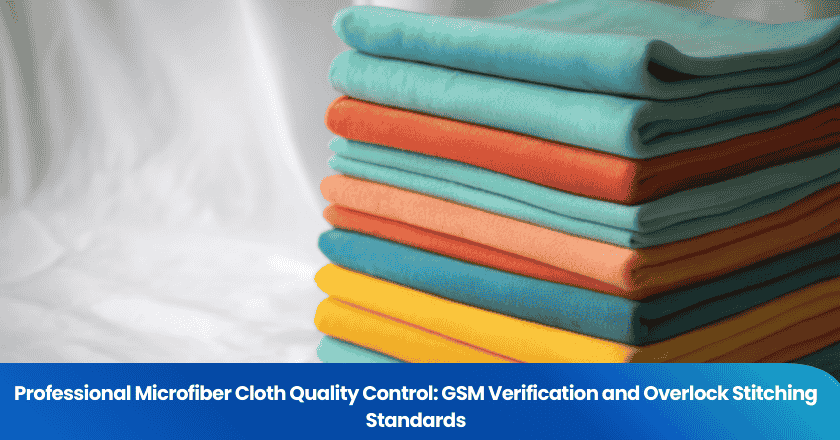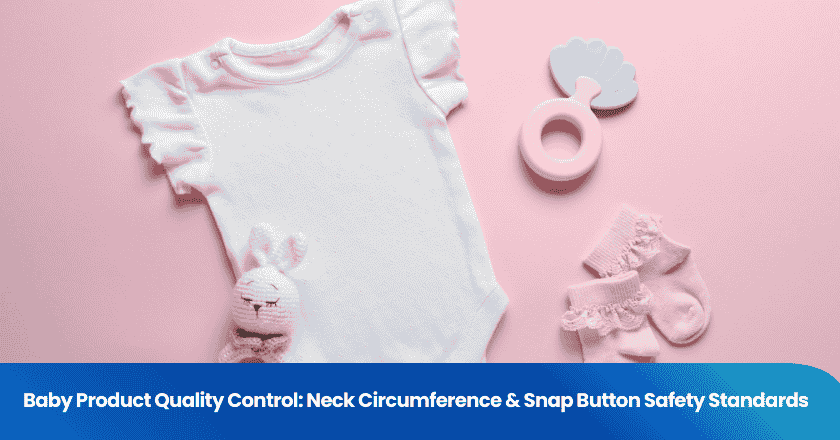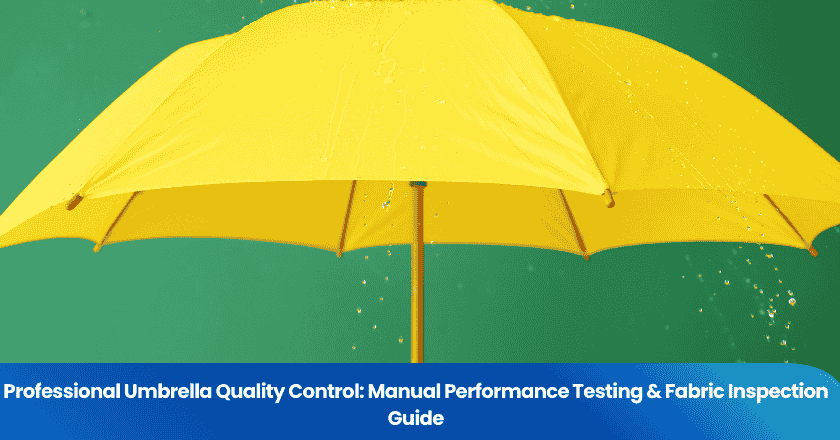
You encounter the term "quality inspector" when learning about manufacturing or quality assurance. A quality inspector examines products, materials, or processes to confirm that they meet strict standards. You take on a critical role in preventing defects and ensuring top-quality products reach customers. By using systematic approaches like Acceptable Quality Level benchmarks, you help reduce defect rates and support production efficiency. Your work goes beyond inspection by focusing on prevention, which lowers costs and enhances customer satisfaction. Understanding what is a quality inspector gives you insight into how companies achieve reliable and consistent results.
Key Takeaways
- Quality inspectors ensure products meet strict standards, preventing defects and enhancing customer satisfaction.
- Daily tasks include visual inspections, measuring product dimensions, and documenting findings to maintain quality.
- Certifications like Six Sigma and Certified Quality Auditor boost career prospects and demonstrate expertise in quality control.
- Strong attention to detail and analytical skills are essential for identifying defects and solving problems effectively.
- Working environments vary from manufacturing plants to laboratories, requiring adaptability and adherence to safety protocols.
What is a quality inspector
Quality inspector job description
You play a vital role in manufacturing, construction, and many other industries when you work as a quality inspector. You ensure that products, materials, and processes meet strict standards before they reach customers. The quality inspector job description covers a wide range of responsibilities that require technical expertise and attention to detail.
As a quality inspector, you focus on preventing defects and maintaining consistency. You examine raw materials, monitor production, and inspect finished goods. You use tools and equipment to measure product dimensions and verify functionality against specifications. You read blueprints and technical documents to understand requirements. You document inspection results and report any issues to the production team.
Here is a table summarizing the primary responsibilities you handle as a quality inspector:
| Responsibility | Description |
|---|---|
| Quality Assessments | Perform regular quality assessments on all incoming materials and outgoing products. |
| Reject Non-compliance | Reject all products and materials that fail to meet quality expectations. |
| Blueprint Reading | Read blueprints, plans, and specifications to understand product requirements. |
| Product Measurement | Measure product dimensions and examine functionality against specifications. |
| Process Improvement | Recommend improvements to the production process for quality control. |
| Documentation | Document inspection outcomes with detailed reports and performance records. |
| Team Training | Teach the production team about quality control concerns. |
| Supervision | Supervise the production process. |
| Issue Resolution | Resolve quality-related issues in a timely manner. |
You also conduct regular inspections and tests, calibrate equipment, and train junior staff on quality control procedures. You collaborate with production teams to resolve issues and ensure compliance with health and safety regulations.
Quality control inspector role
When you work as a quality control inspector, you take on the responsibility of enforcing standards and regulatory requirements. You use systematic methods to verify product quality and maintain consistency across production batches. You monitor production quality in real-time using statistical process control (SPC). You apply Six Sigma principles to eliminate defects and reduce variation. You support total quality management (TQM) by promoting continuous improvement throughout the company.
You inspect products visually and use sampling techniques to test random items. You rely on automated testing machines to check product parameters for accuracy and consistency. You perform pre-production inspections to check raw materials, in-production inspections to catch defects early, and pre-shipment inspections to ensure finished goods meet requirements. You also verify labeling and packaging during container loading control inspections.
Your role as a quality control inspector extends beyond product checks. You analyze data, interpret technical documents, and propose solutions when you find defects. You help companies comply with industry regulations by identifying non-conformities early and implementing corrective actions. You maintain product consistency, reduce costs by catching defects before they escalate, and protect the company's reputation by preventing recalls.
You work in various industries, including manufacturing, construction, and cosmetics. In each field, you ensure that products meet specific standards and regulations. You verify that materials and workmanship meet design specifications and building codes. You focus on ingredient quality and regulatory compliance to prevent recalls and maintain safety.
You answer the question "what is a quality inspector" by demonstrating your commitment to quality control, attention to detail, and problem-solving skills. You ensure that every product meets the required standards before it reaches the customer.
Responsibilities
Daily tasks
As a quality inspector, you handle a range of daily tasks that keep product quality at the highest level. You start your day by conducting visual inspections of products. You check for defects in appearance and functionality. You use specialized tools to test features and confirm that each item meets standards. You monitor manufacturing processes to ensure they follow strict quality guidelines. You identify and document any issues before products reach consumers. You provide feedback to production teams, suggesting improvements based on your inspection findings.
- Conduct visual inspections of products for appearance and functionality.
- Use specialized tools and methods to test product features.
- Ensure manufacturing processes adhere to established quality guidelines.
- Identify and document issues or inconsistencies.
- Provide feedback to production teams for process improvement.
You play a key role in maintaining safety and reliability. You ensure compliance with industry standards, which is vital for safe and reliable products. You create nonconformance reports to document defects and their potential impacts. Your work helps prevent safety issues and supports communication between suppliers and purchasers.
Tip: Your attention to detail and commitment to standards help prevent costly recalls and protect consumer safety.
You also face challenges in your daily work. You may encounter poor understanding of the product among team members, inadequate documentation, or ignored machine maintenance. Inadequate training can lead to errors and safety risks. You address these challenges by staying informed, documenting findings, and promoting regular training.
Types of inspections
You perform several types of inspections as a quality inspector. Each type serves a specific purpose and helps you maintain product quality across different industries.
1. Visual Inspection: You examine items for visible defects using your eyes or magnifying tools.
2. Dimensional Inspection: You measure items to ensure they meet specified dimensions and tolerances.
3. Non-Destructive Testing (NDT): You assess materials without causing damage, which helps you detect subsurface defects.
4. Destructive Testing: You test samples to their breaking point to determine strength and durability.
5. Functional Testing: You test products under operational conditions to verify performance.
6. First Article Inspection (FAI): You examine the first item produced to ensure it meets design specifications.
You select the appropriate types of quality inspector methods based on the product and industry. You use these inspections to catch defects early and maintain consistency. You help companies meet standards and deliver reliable products to customers.
Reporting
You document and report your inspection results to management using standardized processes. You record crucial details for each inspection, which helps classify and prioritize inspections based on risk. You create nonconformance records automatically for failed inspections. You include visual evidence in your reports for clarity.
| Component | Description |
|---|---|
| Inspection Details | You capture key information like report ID, date, location, and your name as the inspector. |
| Product/Process Details | You include item name or SKU and batch or lot number for quality checks. |
| Inspection Checklist & Criteria | You document the specific checklist used for the inspection against predefined criteria. |
| Findings & Observations | You record detailed notes on compliance and deviations. |
| Non-Conformance Details | You describe non-compliances and their severity levels. |
| Visual Evidence | You add photographs, videos, or diagrams to illustrate findings related to defects. |
| Recommended Actions | You suggest corrective and preventive actions to address identified non-conformances. |
| Signatures & Approvals | You confirm inspection completion and review by yourself and/or a manager. |
You ensure efficient inspection management and easy recording of details. You help classify inspections by risk and provide clear evidence for decision-making. Your reports support corrective actions and continuous improvement in product quality.
Qualifications
Education
You start your journey as a quality inspector by meeting basic educational requirements. Most entry-level positions in the quality control field ask for a high school diploma. You often gain practical experience through on-the-job training, which helps you understand quality standards and inspection techniques. Many employers offer short-term courses to help you develop quality inspector skills and education. You learn to read technical documents, use measuring tools, and follow industry standards. You build a foundation that prepares you for more advanced roles in quality control.
- High school diploma required for most entry-level roles
- On-the-job training helps you master inspection procedures
- Short-term courses available for specialized skills
Tip: You can advance your career by seeking additional training and education in quality inspector skills and education.
Certifications
You boost your credibility and career prospects by earning certifications. These credentials show your commitment to quality standards and your expertise in the quality control inspector role. You find many recognized certifications in the United States and Europe. Some focus on process improvement, while others emphasize auditing or technical skills. You choose certifications based on your career goals and the industry you work in.
| Certification Name | Description |
|---|---|
| Certified Manager of Quality/Organisational Excellence | Designed for experienced leaders overseeing large-scale quality systems. |
| Six Sigma Green Belt | Focused on process improvement, managing small projects. |
| Six Sigma Black Belt | Focused on process improvement, leading large projects. |
| Certified Quality Auditor | Demonstrates auditing skills for compliance and system inspections. |
| Certified Quality Engineer | Emphasizes technical expertise in statistical control and reliability. |
| Certified Quality Improvement Associate | A starting point for those new to the field. |
| Certified Quality Professional (CPHQ) | Specialized certification in healthcare. |
| Certified Quality Professional (CPGP) | Specialized certification in pharmaceuticals. |
| Certified Quality Engineer (CSQE) | Specialized certification in software. |
You improve your job prospects and demonstrate your dedication to quality control inspector standards by earning certifications. You also stay updated with changes in quality standards through ongoing training.
Skills
You need a mix of technical and soft skills to succeed as a quality inspector. You use attention to detail and analytical skills to spot defects and solve problems. You communicate clearly with team members and manage your time effectively. You show commitment to learning and adapt to new quality standards and inspection methods. You develop these skills through training and experience in the quality control field.
| Skill Type | Skills Description |
|---|---|
| Technical Skills | Attention to Detail, Analytical Skills, Problem-Solving Abilities |
| Soft Skills | Communication and Interpersonal Skills, Time Management, Commitment to Learning |
You strengthen your abilities through ongoing training and by seeking feedback from supervisors. You use your skills to uphold quality standards and support continuous improvement in your workplace.
Working as a quality inspector
Work environment
When you start working as a quality inspector, you enter a dynamic setting that demands attention and adaptability. You often find yourself on the manufacturing shop floor, surrounded by moderate noise from machines and constant movement. The quality inspector work environment requires you to stay alert and focused, as you interact with both equipment and team members. You regularly sit, talk, and listen during inspections, but you also use your hands for precise measurements and testing. Sometimes, you stand, walk, reach, and lift items weighing up to 25 pounds. You rely on close, distance, and color vision to spot defects and ensure products meet standards. You adjust your focus quickly to examine different materials and components.
| Aspect | Description |
|---|---|
| Work Environment | Manufacturing shop floor with moderate noise levels from machines and traffic. |
| Physical Demands | Regularly sit, talk, hear; frequently use hands; occasionally stand, walk, reach; lift/move up to 25 pounds. |
| Vision Requirements | Close, distance, color vision, and ability to adjust focus. |
Technological advancements continue to shape your daily experience. You use AI and machine learning to improve accuracy and efficiency in inspections. Automation transforms traditional processes, allowing you to monitor quality in real time and take immediate action when issues arise. You benefit from improved detection accuracy, reduced manual labor, and proactive defect management.
Typical workplaces
You encounter a variety of workplaces when working as a quality inspector. Most commonly, you work in manufacturing plants, where you inspect products on assembly lines and monitor production processes. You may also work in warehouses, checking incoming materials and finished goods before shipment. Construction sites offer another environment, where you verify that building materials and workmanship meet safety codes. Laboratories provide a controlled setting for testing and analysis, especially in industries like pharmaceuticals or cosmetics.
You adapt to each workplace by following safety protocols and using specialized tools. You collaborate with engineers, supervisors, and production staff to maintain high standards. Your role requires flexibility, as you move between different areas and adjust to changing conditions. You play a key part in ensuring that every product leaving the facility meets strict quality requirements.
Tip: Embrace new technologies and stay updated on industry trends to excel when working as a quality inspector. Your commitment to quality and adaptability will set you apart in any workplace.
Career prospects
Job outlook
You see strong job opportunities as a quality inspector in many industries. Manufacturing, construction, food and beverage, pharmaceuticals, and electronics all need skilled inspectors. You find high demand in sectors like aerospace in California and Washington, electronics in Texas, and pharmaceuticals in New Jersey. You inspect products, machinery, and processes to ensure they meet standards. You play a key role in keeping products safe and reliable. As technology advances, you adapt to digital inspection tools, AI, and cloud-based systems. You stay current with new methods and global standards. You notice that continuous learning helps you keep your job skills sharp. You find that globalization increases the need for inspectors who understand different regulations. You see that the job outlook remains steady as companies focus on quality and safety.
| Industry | Description | Geographical Relevance |
|---|---|---|
| Aerospace | Aircraft parts and high-stakes systems | California, Washington |
| Electronics | Chips, semiconductors, and circuit boards | Texas, Silicon Valley |
| Pharma | Drug testing and FDA compliance | New Jersey, North Carolina |
| Food & Beverage | Keeping food safe and labeled right | Midwest |
| Energy | Solar panels, turbines, and more | Texas, Oklahoma |
Salary
You want to know what you can earn in this job. The average quality inspector salary in the United States is about $39,397 per year. Your pay depends on several factors:
- Experience: More years in the job lead to higher pay.
- Location: Cities with active industries, like Orlando, offer better salaries.
- Certifications: Earning credentials increases your income potential.
- Range of Services: Specialized skills boost your earnings.
- Marketing: Good networking helps you find more job opportunities.
You compare your pay to similar roles. Quality assurance technicians and quality control technicians earn higher salaries, averaging $46,500 and $46,537. The average quality inspector salary remains competitive, especially if you gain experience and certifications.
Advancement
You can move up in your career by gaining experience and earning certifications. You start as a quality inspector, but you can advance to roles with more responsibility. You may become a quality assurance manager, process improvement specialist, auditor, or product development specialist.
| Role | Description |
|---|---|
| Quality Assurance Manager | Oversee quality teams and develop standards. |
| Process Improvement Specialist | Identify and implement efficiency strategies. |
| Auditor | Conduct internal or external compliance audits. |
| Product Development Specialist | Ensure quality during product design and testing. |
You improve your job prospects by earning certifications like Certified Quality Inspector or Six Sigma. Programs such as the AMPP Coating Inspector Program help you take on more complex roles. You see that continuous learning and adapting to new technologies help you grow in your job.
You play a vital role in modern manufacturing by ensuring products meet strict standards. Your work supports regulatory compliance, cost containment, and risk reduction.
| Key Aspect | Explanation |
|---|---|
| Regulatory Compliance | You help companies avoid penalties and shutdowns by meeting specifications. |
| Cost Containment | You prevent scrap and warranty claims, protecting profit margins. |
| Risk Reduction | You reduce the chance of undetected defects in safety-critical industries. |
| Customer Satisfaction | You deliver consistent quality, boosting reputation and competitiveness. |
| Data-Driven Continuous Improvement | You provide data that drives process improvements and operational performance. |
| Supply-Chain Resilience | You maintain clear records, improving supply chain management. |
| Strategic Value Creation | You support high standards that open market opportunities and strengthen supplier agreements. |
- You conduct systematic evaluations to ensure product quality.
- You use your experience and knowledge to assess specifications and regulations.
- You identify and address defects early, fostering continuous improvement.
If you value precision and enjoy problem-solving, you should consider a career as a quality inspector. Your expertise shapes the future of quality assurance.
FAQ
What skills do you need to become a quality inspector?
You need strong attention to detail, analytical thinking, and good communication skills. Technical knowledge helps you understand inspection tools and standards. You improve your skills through training and hands-on experience.
Where do quality inspectors usually work?
You work in manufacturing plants, warehouses, construction sites, and laboratories. Each workplace requires you to follow safety protocols and use specialized equipment. You adapt quickly to different environments.
How do you report inspection results?
You document findings using standardized forms or digital systems. You include details like product information, inspection criteria, and non-conformance notes. You add photos or diagrams for clarity.
What certifications help you advance as a quality inspector?
You earn certifications such as Six Sigma, Certified Quality Auditor, or Certified Quality Engineer. These credentials show your expertise and help you qualify for higher-level roles.
Can you specialize in a specific industry as a quality inspector?
You choose to specialize in industries like aerospace, pharmaceuticals, or electronics. Each field has unique standards and regulations. Specialization increases your job opportunities and earning potential.
Grow your business with TradeAider Service
Click the button below to directly enter the TradeAider Service System. The simple steps from booking and payment to receiving reports are easy to operate.





